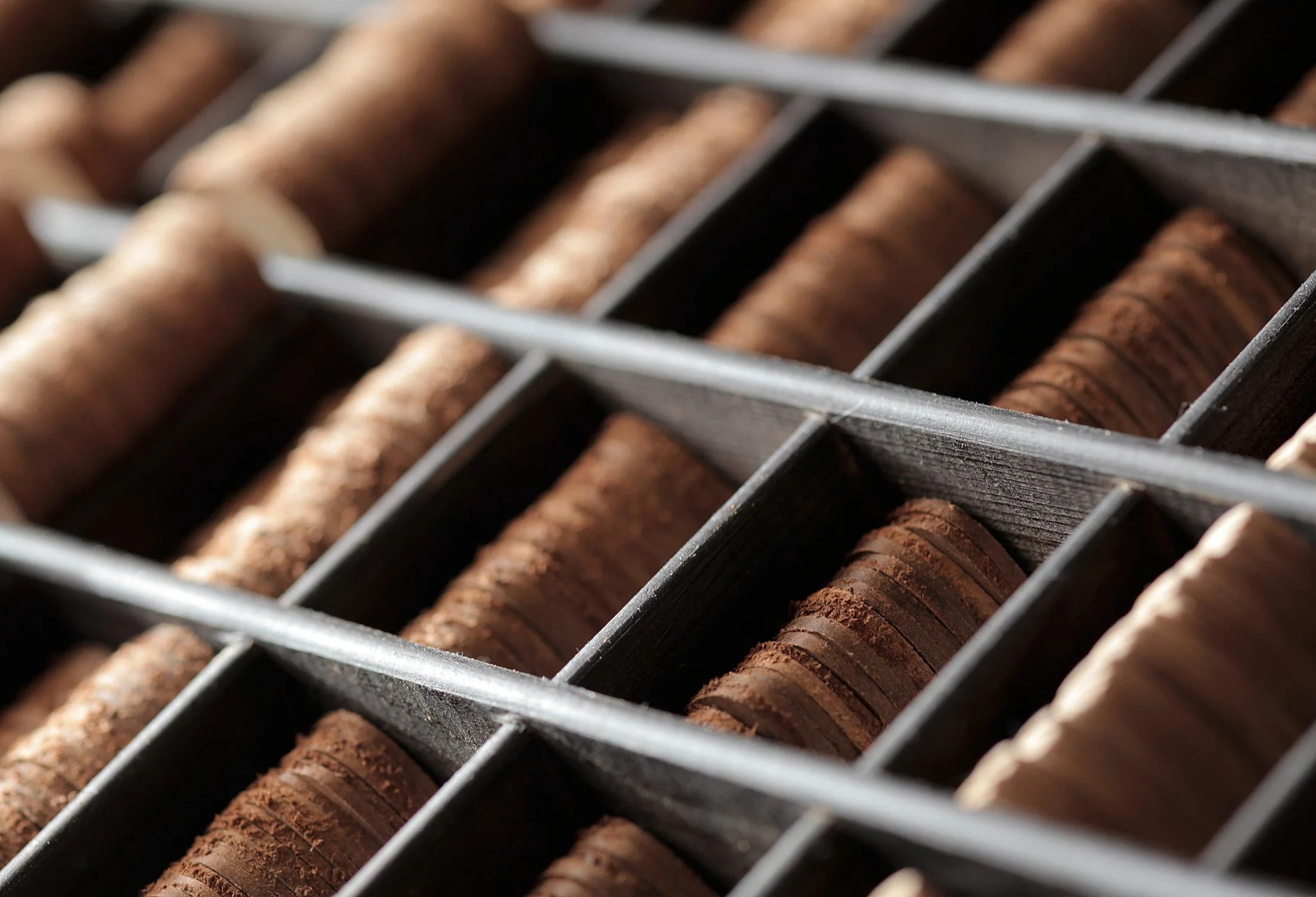
Each guitar pick made of wood has its own unique properties and signature sound as a result of differences in density, hardness and wood cell structure. Wood picks produce a warmer tone.
It’s been said that only the hardest woods are used for guitar picks, however, what we found out in our research and intensive testing, is that wood with long fibers, not necessarily the hardest wood, was ideal for guitar picks. The reason being the more you play and the harder you play, the long wood fibers are “packed” near the tip and hardens the picking surface naturally. Some harder woods tend to wear faster because the wood is actually worn off.
The sometimes thick edge of a wood pick may create a fair amount of drag at first, but wood picks are generally easy to break in and may even do so quicker than plastic picks. After a couple hundred strokes, the metal guitar strings wear down the edge and create a smoother pass.
One-Piece wood picks handcrafted from selected Oak, Ash, Blood Beech & Kebony Maple.
Available in all eight shapes Milrid, Myrthild, Sønni, Sollin, Ågåt, Hedda, Olin & Peroline.
Three-Piece laminated wood picks built with a core choice of Oak, Ash, Blood Beech or Kebony Maple can be ordered in The Custom Shop.

``When I Die Someday Far In The Future, You May Touch My Tools. If You Wish To Die Today, Then You May Touch Them Now.`` — Gary Rogowski
Ash
Ash is a hardwood. Dense, tough and very strong, but elastic, extensively used for making bows, tool handles, baseball bats, hurleys and other uses demanding high strength and resilience.
Often used as material for electric guitar bodies and, less commonly, for acoustic guitar bodies, known for its bright, cutting tone and sustaining quality. Some Fender Stratocasters and Telecasters are made of Ash, as an alternative to the darker sounding Alder.
Ash is perfect for slow wearing guitar picks. The more the pick is used the more the fibers pack at the tip, making the surface hitting the strings even denser and smoother.
Hazel
We cut down a Hazel tree in Gol eighteen months ago, donated by a local farmer. The wood dried beautifully and is now ready for use in production. The Hazel will be used for picks for acoustic guitar. It’s not as dense as Oak or Beech, but has a warm, round tone.
Apple
The apple is the pomaceous fruit of the apple tree, Malus domestica of the rose family (Rosaceae). It is one of the most widely cultivated tree fruits, and the most widely known of the many members of genus Malus that are used by humans. Apples grow on deciduous trees which are large if grown from seed, but small if grafted onto roots (rootstock).
The tree originated in Central Asia, where its wild ancestor, Malus Sieversii, is still found today. Apples have been grown for thousands of years in Asia and Europe, and were brought to North America by European colonists. Apples have been present in the mythology and religions of many cultures, like Norse, Greek and Christian traditions.
Apple core wood is very dense. Beautiful orange in color. Combined with a Copper core it makes for one of the absolute better sounding picks we build.
Oak
It’s been said that an Oak tree grows for five hundred years, lives for five hundred years, and dies for five hundred years.
Oak planking was common on high status Viking longships in the 9th and 10th centuries. The wood was hewn from green logs, by axe and wedge, to produce radial planks, similar to quartersawn timber.
The keel of the Gokstad excavated in Norway in 1880 was built of of a straight grown Oak approximately 25 meters (82 feet) in height.
Oak has great strength and hardness. It also has very appealing grain markings, particularly when quartersawn. Wide, quartersawn boards of Oak have been prized since the Middle Ages for use in interior panelling of prestigious buildings such as the debating chamber of the House of Commons and in the construction of fine furniture.
Oak is a symbol of strength, lifeforce and perseverance. In Norway there are only two types of Oak, Summer Oak and Winter Oak.
Blood Beech
Chips of Beech wood are used in the brewing of Budweiser beer as a fining agent. Beech logs are burned to dry the malts used in some German smoked beers, giving the beers their typical flavour. Beech is also used to smoke Westphalian ham, various sausages, and some cheeses. Some drums are made from Beech, which has a tone between those of Maple and Birch, the two most popular drum woods. Its density makes it the perfect core for the All Wood Series Three-Piece pick.
Kebony Maple
Kebony is a denser, heavier and harder wood than most trees found in Norway. The invention of the Kebonization process is a Norwegian story 20 years in the making. Kebony is based on a process where sustainable wood is made more durable, harder and more stable using liquids from bio waste material. Kebony is a sustainable alternative to hardwoods from tropical regions. The products resemble teak and other tropical varieties of wood.


